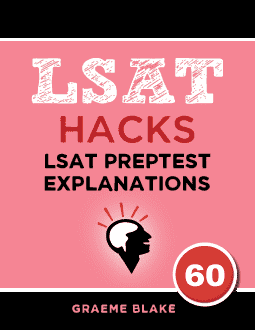DISCUSSION: I found this a difficult question. The right answer is fairly subtle. You have to combine separate parts of the passage to make the inference.
___________
- The New Urbanists never said this. They just said the amount of time required is an important factor. But maybe low crime rates are a more important factor, for example.
“Primary factor” type answers are usually traps. In real life we rarely talk about “main” factors. E.g. One factor might be 42% important, another 41%. Do you really care that the first factor is 1% more important, and therefore “primary”? Not really, the effects are similar in importance. - I actually picked this one, incorrectly. I thought it was right because I focussed on the right structure of a suburb: they’re designed for cars. But, this answer is too pessimistic. There are plenty of ways to influence the effects of a policy you dislike.
* You can move. That means the suburban policies no longer affect you.
* You can change your lifestyle within a suburb. It is possible to bike, to carpool, to go on walks, to socialize more.
* You can try to change policies. This will limit their effects. The whole point of the New Urbanists’ argument is to change policies in the long run. - This isn’t mentioned, but it’s unlikely the New Urbanists would agree, since their focus is on how suburbs force people to drive.
- CORRECT. This is supported by lines 26-30, which show that neighbourhood planning forces residents to drive even for simple tasks. And yet lines 46-50 show that suburbs’ prevalence is driven at least in part by peoples’ desire to move there and enjoy the benefits of cars. So we are affected by the configuration of suburbs but also affect it (by moving there, by approving of planning policies, etc.)
- “Personal values should not affect the way neighborhoods are designed”. That’s an extreme, insane statement. On the LSAT, you must take statements literally. This would mean that no personal values should go into neighborhood design. Not even New Urbanist personal values!

Want a free Reading Comp lesson?
Get a free sample of the Reading Comprehension Mastery Seminar. Learn tips for solving RC questions


Graeme,
For this question, my book and other sources online seem to indicate the correct answer is D. This is the first time you’ve been inconsistent with any of my other material so if I am mistaken please disregard my message. Just wanted to bring your attention to it in case there is an error.
Thanks for catching this! The correct answer is indeed (D). The page will be updated shortly.